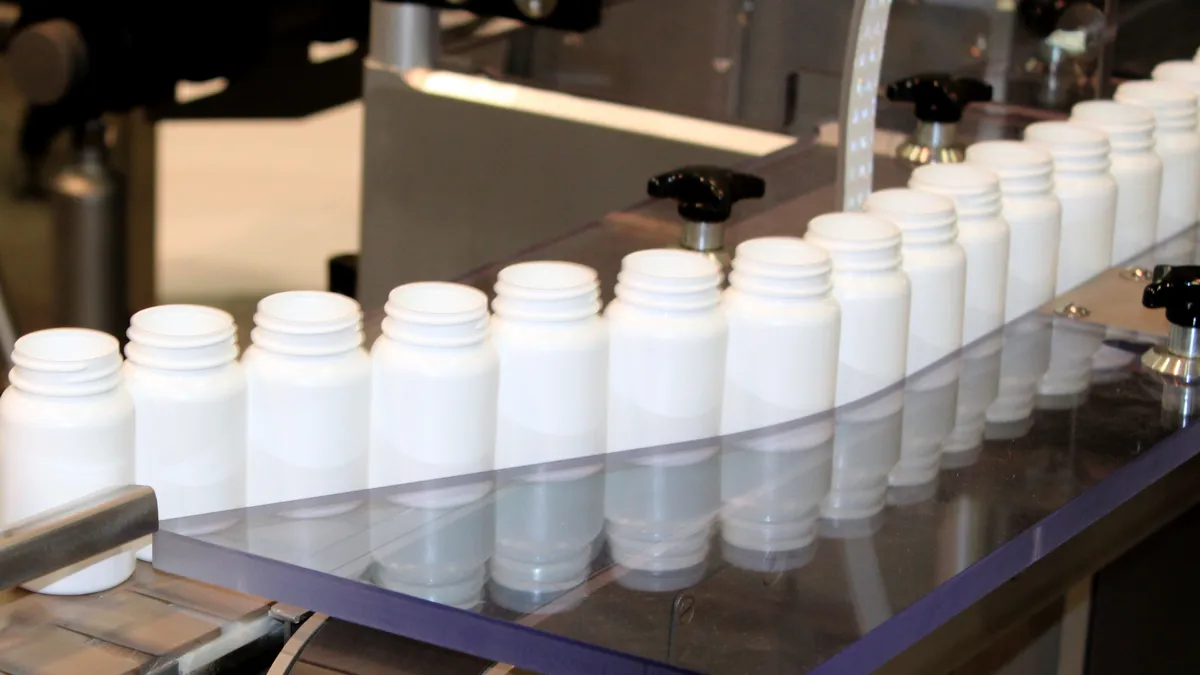Dive Brief:
- The Federal Trade Commission is looking into how large market players in the drug industry might impact availability and shortages of key medicines.
- The agency, together with the U.S. Department of Health and Human Services, issued a joint request for information around drug wholesalers and group purchasing organizations’s practices, their compliance with competition laws, and how they impact pharmaceutical prices and supplies.
- “For years Americans have faced acute shortages of critical drugs, from chemotherapy to antibiotics, endangering patients,” FTC Chair Lina Khan said in a press release. “Our inquiry requests information on the factors driving these shortages and scrutinizes the practices of opaque drug middlemen.”
Dive Insight:
Persistent drug shortages in recent years have caused patient frustration — and danger — as well as government scrutiny.
Last year, the U.S. Senate Committee on Homeland Security and Governmental Affairs highlighted the lack of end-to-end visibility on pharma supply chains, as well as geographic concentration for many ingredients, as key risks in supply chains that rise to the level of national security issues.
Other experts have pointed to low margins in drug manufacturing, in addition to difficulties around expanding the supplier base, as weighing on supplies.
The FTC’s inquiry into shortages considers market concentration and hones in on two groups of players, wholesalers and GPOs, which the agency described as “middlemen” in the pharmaceutical market.
With GPOs — which pool large buyers together to negotiate drug prices with vendors — the request for information highlighted their compensation models, which it noted “may rely on rebates, chargebacks, and administrative fees from manufacturers in exchange for favorable treatment.”
It also asks about wholesalers’ contracting and negotiating practices, compensation and use of supplier quality information.
Among other queries, the request asks after instances where the market power of GPOs or drug wholesalers “directly contributed” to reduced suppliers, shortages or less reliable supply chains. In its release, the FTC described the information as the latest move in a broader effort “to promote competition in pharmaceutical markets.”
The Healthcare Distribution Alliance, an industry association of drug wholesalers, described the information request in a public statement as “the latest in the ongoing dialogue between policymakers, regulators and healthcare supply chain leaders about the root causes of drug shortages,” and said it would contribute comment.
The HDA did not address directly the FTC tying drug shortages to what it described “powerful middlemen.” In its statement, the industry group pointed to causes of shortages identified by the Food and Drug Administration, including manufacturing and quality issues.
“When shortages do occur, distributors actively work to mitigate the impact on patients and healthcare providers,” the HDA said, adding that the industry “regularly monitors for spikes in demand or dips in availability for products and proactively communicates with manufacturers, industry provider partners and regulators.”














